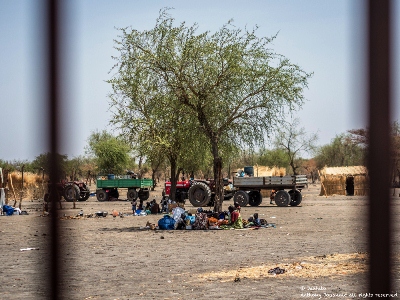Atrocious conditions in Aburoc force 20,000 people into Sudan
May 11, 2017 (JUBA) – More than 20,000 South Sudanese citizens have absconded from Aburoc’s Internally Displaced Persons (IDP) camp due to the constant fighting and dreadful living conditions around the IDP camps, the medical charity, MSF, said.

According to MSF, while others decided to stay in Aburoc in hopes they will receive clean water, food and shelter, an estimated 18,000 people headed to the north.
“The reasons why we are leaving are mainly security and the lack of food and water. We feel a bit better in Sudan because we are receiving support, and now I am with my family,” a refugee who journeyed to Sudan to the medical charity.
MSF said it decided on 11 May to keep providing care for those in Aburoc even when fighting in the nearby town of Kodok two weeks ago displaced more than 20,000.
The organisation’s head of mission for South Sudan, Marcus Bachmann said that many people had taken their personal possessions with the aims of heading north.
“Most of the people we see around Aburoc have packed their few belongings and are waiting for space on a truck departing for the north. Nearly all of those leaving have been forced to abandon their homes and have moved places several times in the past,” said Bachmann, adding “While food has arrived in Aburoc’s market from Sudan, the purity of water and inflation prices still pose a problem”.
“Until very recently the population gathering around Aburoc were surviving on a maximum of 21,000 litres of water a day from three hand pumps. This is only 1.1 litres per person which is below the daily minimum amount needed for survival, 2.5 litres. The purity of the water is also a concern, as both humans and animals openly defecate in the areas around the water pumps,” MSF said in a statement.
The statement further stated that the availability of water was low, along with the scarcity in sanitation supplies and shelter.
Humanitarian organisations have reportedly started deploying to the affected areas but poor weather conditions make it difficult to assist those who have been displaced.
MSF says it manages a hospital in Sudan’s White Nile State, and when the emergency started, the medical organisation dispatched a team of 30 medical staff to Khor Waral to work in close collaboration with Sudanese authorities.
(ST)
